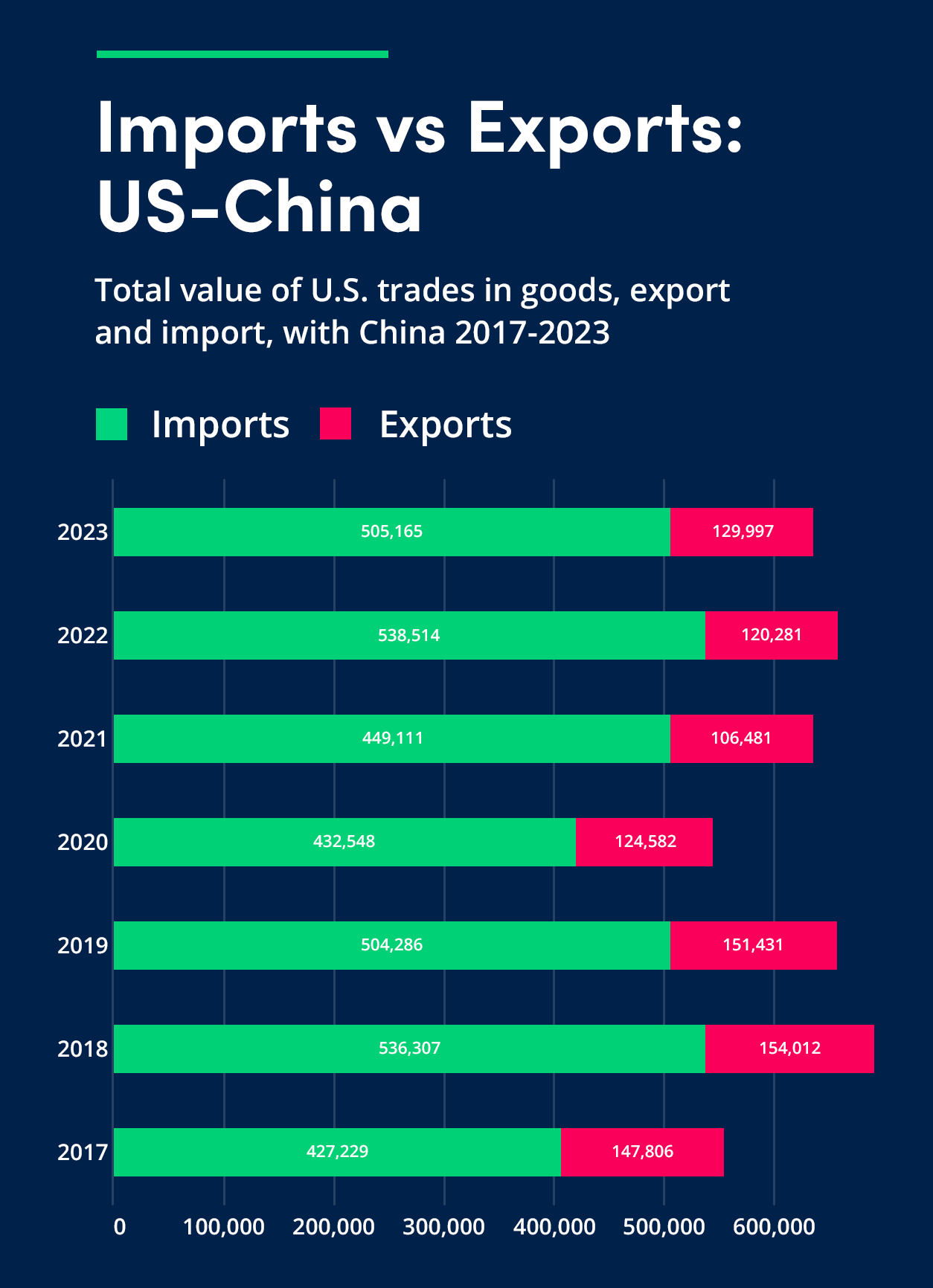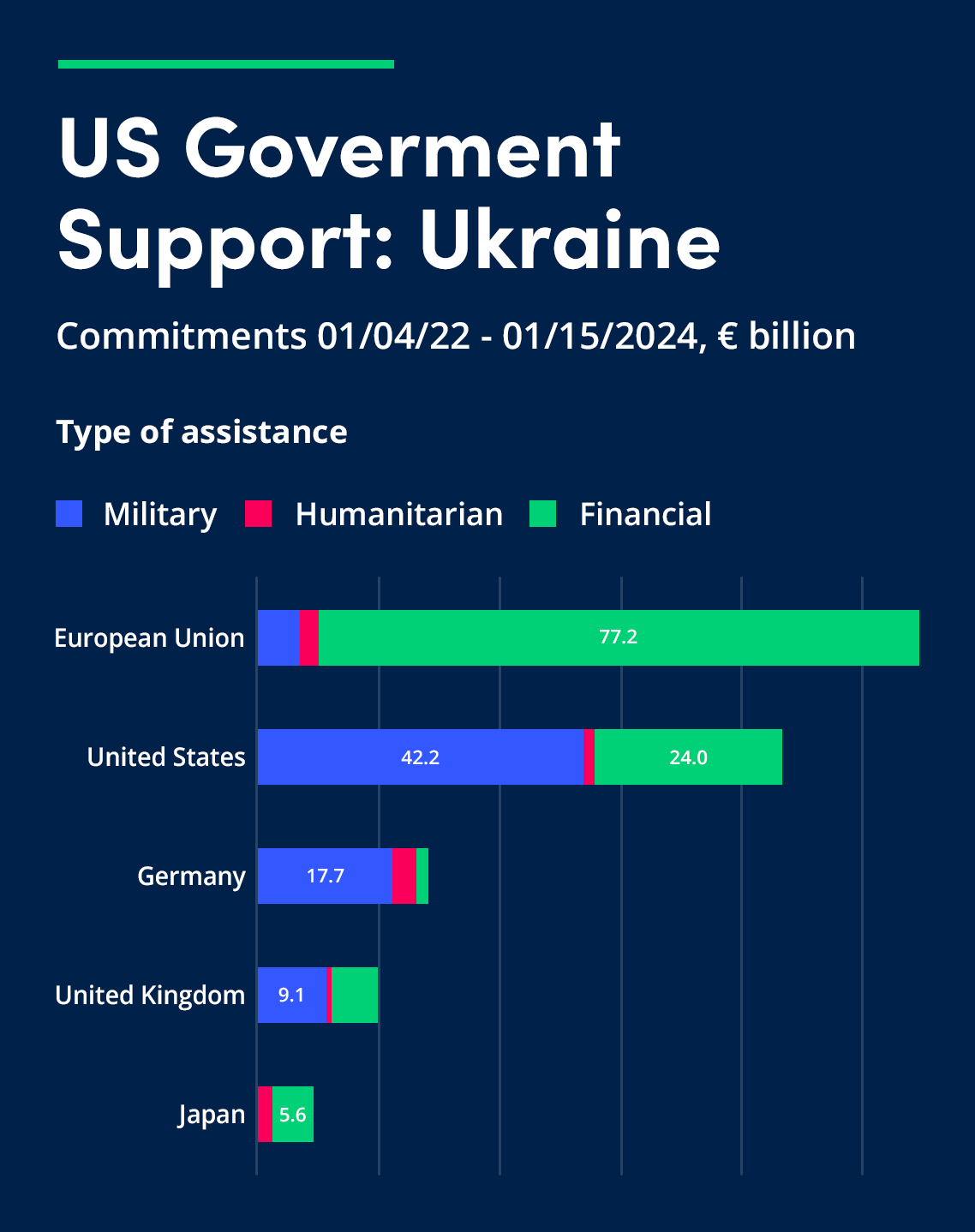A look back at President Biden’s relationships with Russia and Ukraine, the trade war with China, energy policy and trade policy. How did these relationships and policies affect the financial markets and what can we expect from Biden in a second term?
Joe Biden as Democratic Nominee for US President
We are a couple of months away from the presidential election in the United States, which will take place on November 5, 2024 – one of the key events that could shape financial markets this year.
Joe Biden clinched the Democratic presidential nomination in March 2024 and will run for reelection against Donald Trump in the upcoming 2024 presidential election, a repeat of the Trump-Biden matchup in the 2020 presidential election, which Biden won.
Let’s take a moment and think about what the next term of Joe Biden might mean for geopolitics and how it can impact financial markets.
Explore more on Key Economic Metrics to Follow Ahead of the 2024 US Presidential Election.
Biden and Multilateralism in Trade Policy
Concerning trade policy, President Biden has taken a more measured approach than the previous president, Donald Trump, who often clashed with both allies and adversaries of the US.
The cornerstone of Biden’s trade policy is multilateralism, which involves trade agreements between several nations. The aim is to improve relationships between the US and its trading partners while working towards the integration of countries in a multilateral trade framework.
In March 2024, during the US presidential campaign, the Biden administration released the 2024 Trade Policy Agenda, which calls for “inclusive, durable trade policy through expanded engagement.” This approach endorses international cooperation in the global trade arena, in sharp contrast to Trump’s “America First” approach.
US-Mexico-Canada Free Trade Agreement (USMCA)
A successful example of multilateralism in US trade policy is the US-Mexico-Canada free trade agreement (USMCA), which was signed in 2020. This multilateral trade agreement has created one of the world’s largest free trade zones and has led to a massive increase in trade between the US, Canada, and Mexico.
The agreement provides clear rules of trade between the three members, which has reduced uncertainty for businesses in North America. The USMCA has led to improved access to markets, which has meant increased profits for multinationals and exporters and boosted their share prices. The integration of the North American economy has also raised investor confidence, which often translates into higher demand for stocks, pushing stock prices higher
Although the USMCA may not have led to improvements in all sectors, a strong argument can be made that the agreement has been a success and has contributed to stability in the financial markets.
Indo-Pacific Economic Framework for Prosperity (IPEF)
The Biden Administration has launched negotiations for multilateral agreements, in particular the Indo-Pacific Economic Framework for Prosperity (IPEF). This economic initiative was launched in May 2022.
IPEF is made up of fourteen countries, including the United States, Japan, and India, and represents about 40% of global GDP. IPEF has been designed as a flexible arrangement that allows countries to join any of the four pillars of the agreement, one of which is trade.
IPEF seeks to strengthen trade relationships among members and can be viewed as the Biden administration’s attempt to counter China’s influence in the Indo-Pacific. Thus, IPEF is not only an important multilateral trade agreement but also plays a key role in US foreign policy.
A second Biden term could see the United States push IPEF members to finalize agreements that would expand trade between members, such as increasing the flow of investments and creating a more uniform regulatory environment. These measures might be followed by a reduction in volatility in financial markets as they would increase economic integration and reduce uncertainty for investors.
Joe Biden and China: Is the Trade War Over?
The trade relationship between the United States and China, the two largest economies in the world, is complex. China is the third largest trading partner of the United States, and a strong trading relationship is very much in the interest of the US. Still, serious disputes have arisen which have required US administrations to take action in order to protect US interests.
The US has long accused China of unfair trade practices and intellectual property theft. The Biden administration has been more restrained compared to the Trump administration, which clashed with China in a full-blown, bitter trade war. Trump slapped tariffs on Chinese products, and China retaliated in kind.
Biden has sought to hold China accountable for trade agreements and has tried to solve disputes constructively without the threats and sharp attacks that characterized Trump’s approach to China.
At the same time, Biden has maintained the tariffs that Trump applied to China on some $370 billion worth of Chinese goods. The trade war with China, which Trump waged aggressively, has continued under Biden, but the latter has adopted a low-key approach compared to Trump’s often incendiary attacks on China.
Intellectual Property Sanctions Against China
Biden has also shown a willingness to take measures against China over intellectual property theft. In January 2023, Biden signed legislation that punished the stealing of US intellectual property by foreign individuals or entities. Since 2022, the US government has implemented export controls to restrict China’s access to semiconductor technology. More recently, the Biden administration has pressured allies such as Japan and Germany to restrict exports of items needed for advanced chip production, much to the dismay of China.
US export controls on semiconductor technology have had a negative impact on US technological companies. These companies have seen revenues fall and have found themselves at a competitive disadvantage compared to foreign companies, which are not subject to these restrictions. This has resulted in a loss of market share and has hurt the share prices of US technological companies.
Biden and Energy Policy
The Biden administration has made clean energy and climate change key priorities. The transition to clean energy means moving away from fossil fuels to renewable energy. On Biden’s first day in office, the US rejoined the Paris Agreement, which President Trump had pulled out of in 2017. The agreement calls for members to reduce their greenhouse gas emissions and is an example of a multilateral agreement built on international cooperation.
Biden has also introduced regulations that curb methane emissions from oil and gas operations in the US and reinstated environmental protections that Donald Trump had removed. In March 2024, Biden issued a regulation that requires that the majority of new automobiles and light trucks sold in the US be all-electric or hybrid by 2032.
These moves, which are designed to reduce the reliance on fossil fuels in favor of renewable energy, should benefit clean energy companies. Interestingly, despite Biden’s efforts to move away from fossil fuels, the US is producing more oil under Biden than it did under the Trump administration. This has resulted in record profits for oil companies, which prompted Biden to publicly blame oil companies for “war profiteering,” a reference to the Russia-Ukraine war.
Biden’s Perspective on the Russia-Ukraine War
President Biden has shown unwavering support for Ukraine during its war against Russia. On February 20, 2023, ahead of the first anniversary of Russia's invasion of Ukraine, Joe Biden made a secret trip to Kyiv, which surprised many. He met with the Ukrainian President Volodymyr Zelenskyy, demonstrating his determination to support Ukraine’s effort to fight Russian aggression. Biden met with the Ukrainian president both in Kyiv and in Washington and pledged that “I will not walk away from Ukraine.”1 The US has provided military assistance worth hundreds of millions of dollars and has pledged its commitment to Ukraine's sovereignty and territorial activity. Biden has also imposed sanctions on Russia, including asset freezes and restrictions on trade.
Russia responded to sanctions from European countries by cutting off its exports of oil and natural gas to Europe. The supply disruptions caused strong volatility in the price of oil and natural gas and resulted in declines in stock exchanges in Europe and the United States. European countries were forced to find alternatives, such as Norwegian natural gas. Still, Europe remains dependent on Russian energy supplies, especially in the winter months, and we may continue to see further volatility in the oil and gas sector as long as the war continues.
The Russia-Ukraine war, a major source of geopolitical tension, has had a negative effect on financial markets. The war has turned into a stalemate, and the uncertainty about the outcome has dampened investor sentiment and global stock markets.
Biden’s Administration Policy Continuity
It has been often said that the markets crave certainty. No one can predict the future, of course, but a second term for Joe Biden could mean a continuation of policies in key areas, including a multilateral approach to trade policy, climate control legislation, and using diplomacy to reach an understanding with Russia and China. Biden has been in politics for decades and is unlikely to make major shifts in policy if he wins a second term as president.
This sense of continuity could play a key factor in providing stability to the financial markets. The market’s familiarity with Biden and sense of “what you see is what you get”
(in sharp contrast to Donald Trump’s unpredictability) would be an important factor in providing investors with a sense of stability and providing a boost to investor confidence.
These key developments during the Biden presidency provide insights as to what we can expect from Biden if he wins re-election in November 2024 and how that might affect the financial markets.
Footnotes
1 U.S. Department of Defense - Biden Pledges U.S. 'Will Not Walk Away From Ukraine'
Disclaimer
This article is for general information purposes only, not to be considered a recommendation or financial advice. Past performance is not indicative of future results.
Opinions are the author's; not necessarily that of OANDA Corporation or any of its affiliates, subsidiaries, officers or directors.
Leveraged trading in foreign currency contracts or other off-exchange products on margin carries a high level of risk and is not suitable for everyone. We advise you to carefully consider whether trading is appropriate for you in light of your personal circumstances. You may lose more than you invest. We recommend that you seek independent financial advice and ensure you fully understand the risks involved before trading.










